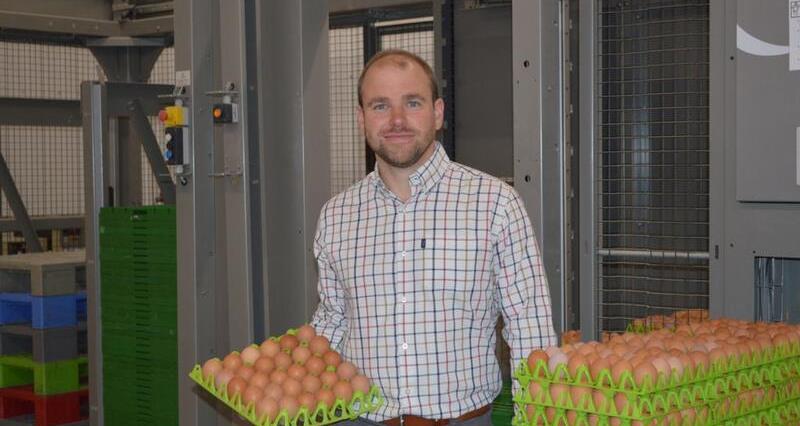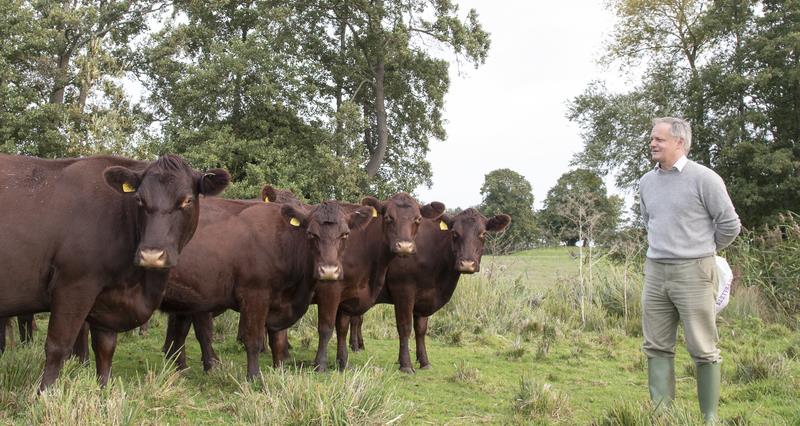Chris is a partner in his family farm in North Yorkshire with 820 acres of arable land and 64,000 free-range layer hens. Running the poultry and arable businesses alongside one another has allowed them to build towards a circular economy on farm.
Building self sufficiency
The chicken litter is used to help fertilise their arable crops which supplies all the necessary phosphorus. This removes the need for additional potash and phosphate and reduces their nitrogen requirements.
Alongside this, they also mill their own feed, with the arable business providing the wheat and barley. Overall, 69% of the poultry feed is now grown on farm.
A great benefit of milling their own feed has been the increased level of control that it has given. Chris has been able to trial mixes that might not traditionally be available on a large scale, and as a result has been able to optimise the feed mix and reduce feed consumption by approximately 10g per bird per day. The average feed consumption over their last two flocks has decreased to 114g per bird per day.
The farm has also reduced the amount of soya in the diet by 30% since they started milling six years ago.
“The main piece of advice I would give to anyone wanting to improve their business resilience is to surround yourself with the right people."
NFU PIP member Chris Harrison
They hope to start growing beans in the future. These would provide additional protein for the feed and further reduce their reliance on soya.
Switching to renewables
Chris has also invested in renewable energy, installing two 100kW wind turbines and 250kW of roof-mounted solar panels. While there were some challenges in obtaining planning permission for the wind turbines and they had to negotiate to obtain a grid connection to be able to install new solar panels, the energy security they have provided has been invaluable.
The on-farm renewables now provide 65-70% of their energy requirements, helping shield them from the energy market volatility caused by current global events. Selling excess energy back to the grid has also provided a useful extra income source. They can now produce up to 130% of the farm’s energy requirements. Therefore, they are keen to use battery storage to better utilise their renewables in the future.
Driven by business resilience
All the actions Chris has taken have been driven by a need to build business resilience, and ultimately maintain as much of a profit margin as possible. However, he is also glad that they are simultaneously reducing their GHG footprint.
When asked what piece of advice he would give to other NFU members thinking of implementing new climate-friendly and business resilient practices, Chris responded: “The main piece of advice I would give to anyone wanting to improve their business resilience is to surround yourself with the right people.
"With so much information out there, it can be difficult to find clarity amongst the noise. That’s why it’s so important to find someone who not only has the knowledge, but also someone you can work well with.”





